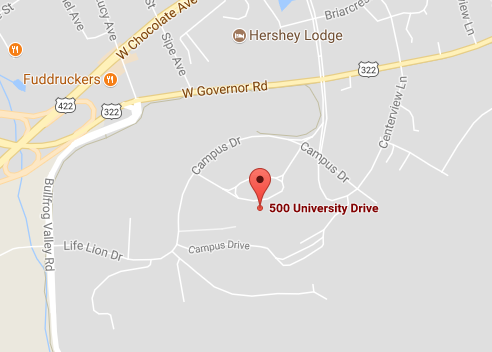The Cancer Navigation and Survivorship Network is presented by the Community Sciences and Health Outcomes (CSHO) Core, a branch of the Penn State Cancer Institute working to provide services, education, and training to facilitate community- and practice-based research. Key services that the CSHO Core works on include: linkage with established community networks; access to health care providers and affiliate hospitals; comprehensive information on the 27-county area served by the Cancer Institute; analysis of secondary data sets; and consultation on community based research, recruitment and retention of diverse participants of cancer control studies, cultural sensitivity, qualitative study design and data analysis, and strategies for dissemination and implementation. It also provides training and education on strategies for recruitment and retention, measurement of health disparities, community health worker training and education, evidence-based interventions, and cancer symposiums.
Recent studies have demonstrated that cancer patient navigation can reduce the risk of cancer development (1), increase the likelihood that cancer will be diagnosed at an early stage when treatment is more effective (2),(3), and improve the quality of life of cancer survivors (4). The effects of both professional navigators (e.g., nurses or social workers) and lay navigators (e.g., community health workers or promotoras) have been found to be effective, especially under research settings (2). The mission of the Cancer Navigation and Survivorship Network (CaNSuN) is to facilitate the dissemination and implementation of patient-centered navigation across the cancer control continuum, from cancer prevention to survivorship, in Pennsylvania.
Current Initiatives of the CSHO Core
- Cancer Care Assessment: population-based analysis of the distribution and quality of outcomes for cancer patients.
- Cancer Survivorship and Patient Navigation (CSPN) Network: a network of health systems, providers, and community-based organizations that designs and tests personalized strategies to improve outcomes for cancer survivors.
- Community Health Worker Program: established in 2010, a peer-led education and individualized assistance program to overcome barriers associated with cancer and other chronic diseases.
- Northern Appalachia Cancer Network (NACN): established in 1992, a community/academic partnership to reduce the burden of cancer in Appalachian communities in Pennsylvania and New York through community-based research, education, and training.
- Patient Navigation: a personalized system-based intervention to reduce barriers across the cancer continuum, from early detection to survivorship and to primary care.
- Walk by Faith (WbF): demonstrated through a 5-year randomized study, WbF is an evidence-based physical activity and nutrition intervention to reduce weight among overweight members of rural faith-based organizations.
- Freeman HP. Patient navigation: a community based strategy to reduce cancer disparities. J Urban Health. 2006;83(2):139-41. Epub 2006/06/01. doi: 10.1007/s11524-006-9030-0. PubMed PMID: 16736361; PubMed Central PMCID: PMCPMC2527166.
- Paskett ED, Harrop JP, Wells KJ. Patient Navigation: An Update on the State of the Science. CA Cancer J Clin. 2011;61(4):237-49. doi: 10.3322/caac.20111. PubMed PMID: 21659419; PubMed Central PMCID: PMC3623288.
- Freeman HP, Muth BJ, Kerner JF. Expanding access to cancer screening and clinical follow-up among the medically underserved. Cancer Pract. 1995;3(1):19-30. Epub 1995/01/01. PubMed PMID: 7704057.
- Fillion L, de Serres M, Cook S, Goupil RL, Bairati I, Doll R. Professional patient navigation in head and neck cancer. Semin Oncol Nurs. 2009;25(3):212-21. Epub 2009/07/29. doi: 10.1016/j.soncn.2009.05.004. PubMed PMID: 19635400.


